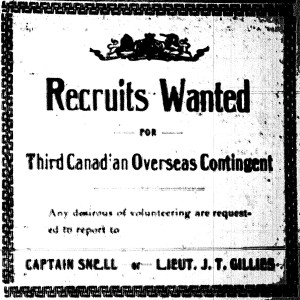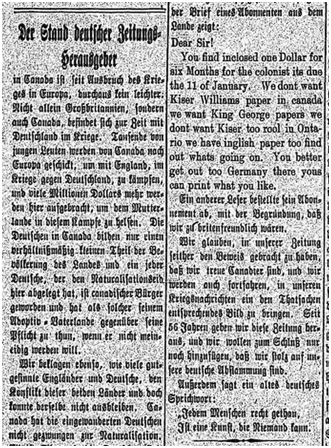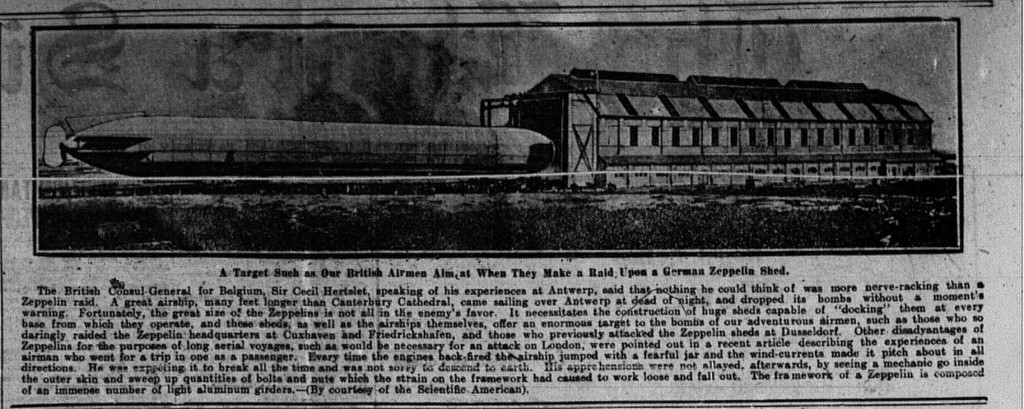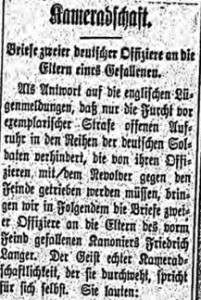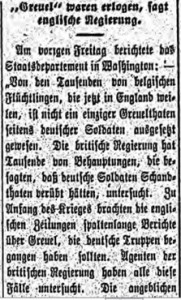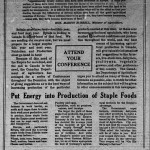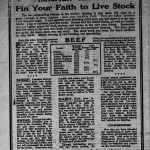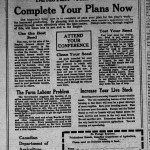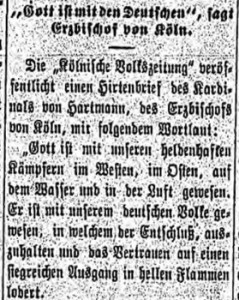While the efforts to supply armies in the field caused local concern over rising prices, the war economy also brought commerce to the Waterloo Region. On January 7th, the Waterloo Chronicle-Telegraph reported that Ottawa had awarded a contract to McBrine & Co., a local luggage manufacturer, for the production of saddles for the Russian Army. Leather for the saddles would be provided by another Berlin firm, the Lang Tanning Company. The contract was reported as bringing $100,000 of revenue to the region. In March, McBrine and Co. would receive another major contract to manufacture artillery harnesses for horse-drawn field artillery.
(“Berlin Firm gets big Order for Army Saddles,” Waterloo Chronicle-Telegraph, 7 January 1915; “Will Make 1,500 Harness Sets for Artillery,” Waterloo Chronicle-Telegraph, 4 March 1915.)

